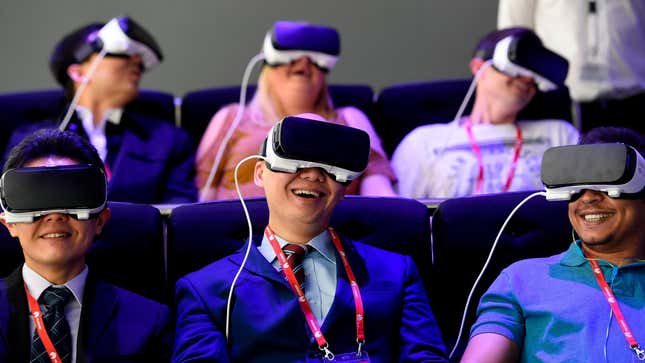
That company you once knew as Facebook is partnering with enterprise rival Microsoft to integrate its Workplace tool with Teams in a potential foreshadowing of future metaverse collaboration.
The partnership will see a cross-pollination of features between the two apps. Workplace users, for example, starting in early 2022 can live stream Teams video meetings in Workplace groups while Team users will have access to Workplace content without having to switch between apps.
Visually, Workplace will appear as a pinned tab in Teams. In a statement to CNBC Meta’s head of Workplace, Ujjwal Singh, said the partnership was geared primarily for businesses that already use both Teams and Workplace to solve different problems
“I would say we’re best in class around community, connection, people first, and serving all employees,” Singh told CNBC. “Teams is arguably best in class around productivity, so this is really two best-in-class products coming together to solve an employee-experience problem.”
While both Meta and Microsoft stand to benefit from the integration, Meta will arguably see the bigger lift. Workplace just surpassed 7 million paid subscribers in May, which is significant but pales in comparison to Microsoft Teams’ reported 250 million monthly active users. It’s worth noting this also isn’t the first instance of Workplace partnering with Microsoft: Office 360 suite, Share Point, and OneDrive are all already integrated.
The Workplace and Teams integration comes just as the two tech giants are poised to square off against each other in the (probably) emerging enterprise metaverse space.
Back in August, Meta—then Facebook—announced a workplace VR collaboration space called Horizon Workrooms. This still in beta application offers a first glimpse at what the VR side of Facebook’s office metaverse could look like in its full cartoonish glory. Then, last week, Microsoft announced it’s preparing to integrate AR and VR from its Microsoft Mesh platform into Teams, in effect creating its own enterprise-focused “metaverse.” (For the record, none of this is the metaverse as far as strict definitions or hype pitches go.)
Microsoft called the Mesh and Teams integration a “gateway to the metaverse” which it describes as “a persistent digital world that is inhabited by digital twins of people, places and things.” Teams users wearing VR headsets could use customizable avatars that will mimic facial cues, which could potentially be used as a virtual stand-in for someone who decides to turn their camera off during a meeting.
While much of Meta and Microsoft’s workplace metaverse ambitions remain frustratingly vague, the recent Workplace and Teams integration could open a path to future enterprise workplace integration between the two companies.
If that happens, metaverses could have a one-stop-shop platform, combining the strengths of Meta’s affordable Oculus hardware and Microsoft’s online productivity know-how. If they don’t, office workers interested in the metaverse may find themselves forced to juggle between multiple competing ecosystems. Oh and then there’s Apple, which is working on its own AR and VR headset and may throw its hat in the ring for yet another competing (though likely consumer) metaverse.
The less exciting, but more likely, outcome of the future of work probably looks a lot like today, with everyone else playing second fiddle to Microsoft only this time in a notably more Wii Mii filled backdrop. In other words, we’ll all probably end up in Microsoft’s metaverse one way or another.